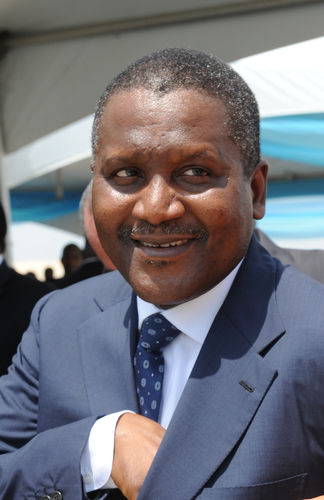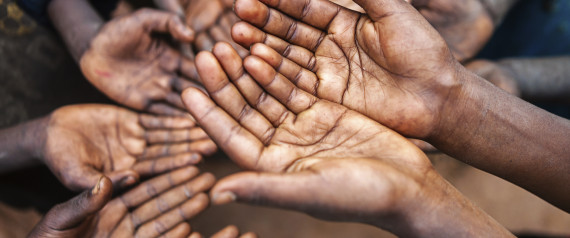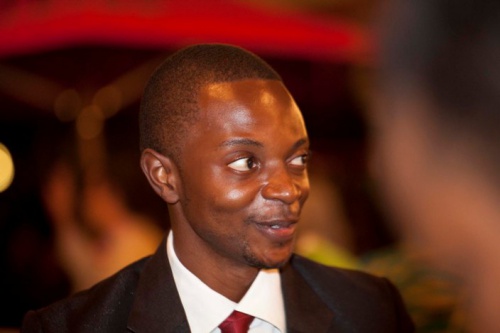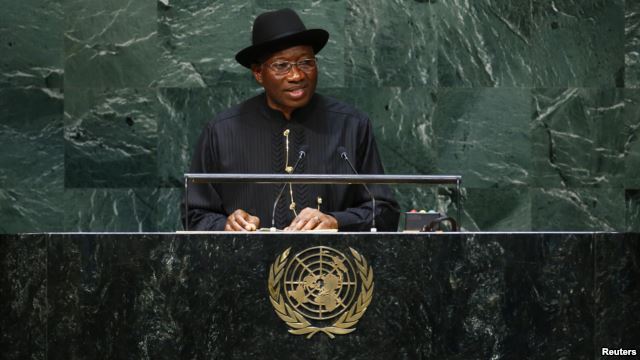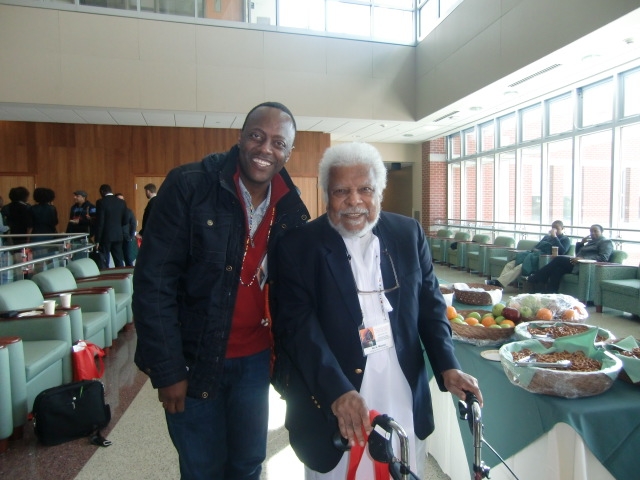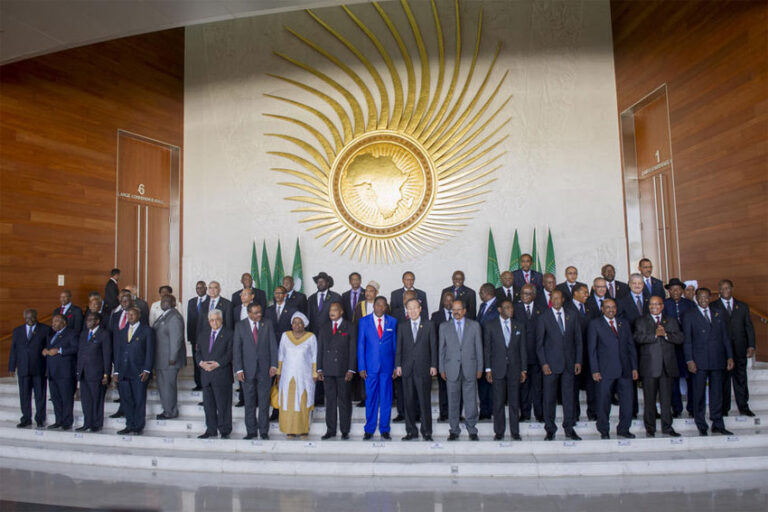Jacob Zuma’s Presidency under Siege?
September 25, 2014
James N. Kariuki*
 At the end of August this year, South Africa’s President Jacob Zuma embarked upon what was called a ‘working visit’ to Russia. Officially, Zuma’s objectives in Moscow included discussing trade enhancement between the Russian Federation and South Africa, searching for investment opportunities and for the South African president to get some rest. But, given their propensity for curiosity, the news media immediately wondered aloud why the details of an official presidential visit seemed to be shrouded by a veil of secrecy in both South Africa and Russia.
Curiosity verged on frustration. First, the ‘resting’ claim for the president was unconvincing. It is true that the Zuma may have needed some rest given his grueling election campaign earlier in the year, his generally questionable health condition and the turbulent events of the first three months of his second term. But, since the trip coincided with the beginning of one of Russia’s notoriously brutal winters, weather alone virtually ruled it out as a vacationing destination of choice for an aging African leader.
On the other hand, if Zuma went to Moscow to promote bilateral trade cooperation and investment opportunities, why is it that his delegation did not include personnel from the relevant Department of Trade and Industry or from the cabinet’s economic cluster? Oddly, the president’s senior official entourage was composed of only the State Security Minister and the International Relations Deputy Minister. To consummate the intrigue, Zuma was not accompanied by a single journalist.
Given the mystique, news reporters were prompted to speculation. What was the ‘real’ purpose of the trip? Why now and why Russia?’
Analysts reminisced that Zuma’s presidency has always been dogged by controversy. But it was precisely in late August 2014, just prior to the Russian trip, that the same presidency became truly embattled. It was at that time that two domestic political crises converged and seemed to escalate uncontrollably to a crescendo.
Political challenges posed by these crises were indeed daunting, sufficiently unsettling to prompt observers to liken them to the infamous US Watergate scandal of the early 1970s. That political scandal pushed President Richard M. Nixon to his historic resignation of 1974 and infected the American body politic forever. It is said that, as a result of the Watergate scandal, the American political system lost its innocence.
The two issues that may forever define the Zuma’s presidency are captured in the general category of corruption and, specifically, they include the so-called Zuma spy tapes and the Nkandla scandal. Remarkably, the otherwise streetwise President has so far fallen short of finding a way to make either of the two problems go away.
Meanwhile, the public passions that the scandals continue to trigger are inflamed by the fact that each is embraced as a crusade attitude of three influential and highly visible public figures. These include Helen Zille, the leader of Democratic Alliance (D.A.) and the largest opposition party; Julius Malema, the leader of the recently formed and recalcitrant Economic Freedom Fighters (EFF) and Thuli Madonsela of the Office of Public Protector. Though they act as separate and distinct entities, these have become Zuma’s political nemeses and are hell-bent to the proposition that, come hell or high water, Zuma will be forced to pay for his political indiscretions.
The most enduring of Zuma’s catalogue of political ‘sins’ is what has come to be known as his spy tapes. Just before South Africa’s 2009 national elections, the National Prosecuting Authority (NPA) cited the tapes as the basis for withdrawing over 700 counts of fraud and corruption allegations against Zuma. But this issue has stubbornly remained unsettled for half a decade and as the core and immovable element in the President’s gathering storm.
The dismissal of the spy tape charges was indeed an indication that the NPA had concurred with Zuma’s contention that the taped conversations between the NPA and the-now-disbanded Scorpions Investigative Unit were convincing evidence that there indeed was a ‘political conspiracy’ against him. The withdrawal eliminated a major legal hurdle for Zuma, clearing the way for him to become president.
However, Helen Zille’s Democratic Alliance (DA), was not convinced. The timing and alleged grounds for Zuma’s exoneration appeared too convenient to be true. For this reason, the largest opposition party was determined to listen to the spy tapes to determine if there indeed was a bona fide legal justification for exempting Zuma. All told, the DA has spent R10 million for this purpose in six court cases during the past five years to get its hands on the Zuma spy tapes.
Clearly, the DA’s hope in this lengthy pursuit has been to ‘uncover’ whether or not the 2009 decision to withdraw the 700 corruption charges against Zuma was politically-driven rather than legal. More than any other figure, Helen Zille has championed this cause with a devotion far greater than a mere political issue would warrant. This is so because, if the spy tapes can demonstrate that the 2009 withdrawal of charges against Zuma was politically-motivated, those charges can be reinstated in court to the detriment of Zuma and his presidency.
Precisely for this reason, it is said, Zuma has fought tooth and nail for nearly half a decade against the tapes’ lease and at a hefty legal fee borne by the tax payers. Unfortunately, his animated objection against the release started to crumble in the same, infamous August 2014. Specifically, on August 28, 2014, the Supreme Court of Appeal ordered that the NPA had to release the contested spy tapes to the DA in five days. Three days later, Zuma departed for Moscow.
The other volatile issue is the Nkandla scandal, the allegation that Zuma has spent R246 million of public funds on his private residence under the guise of presidential security upgrades. In March this year Thuli Madonsela, in her capacity as the Public Protector, released a two-year investigation report that some of the Nkandla modifications were inconsistent with claims of security upgrades and that the President had to pay back for the misspent public funds.
Politically, Julius Malema and Thuli Madonsela are indeed strange bedfellows. The former is the leader of recently formed radical political party, the EFF. As indicated, the latter is the incumbent Public Protector, a government official. Ideologically, they have nothing in common. It is thus a measure of the mounting pressure on Zuma’s presidency that an alliance-of-sorts seems to have emerged between the two in opposition to the Nkandla issue, especially in Parliament. In August, both were demanding from President Zuma a transparent accounting for Nkandla, insisting on the right of the public to know when he planned to pay back for the alleged non-security expenditures.
On August 21, as the EFF aggressively grilled Zuma in Parliament regarding the Nkandla affair, a heated verbal exchange erupted between the Speaker of the House and Julius Malema. As a result of an ensuing chaos and stand-off between the two, the Speaker adjourned the National Assembly while riot police were summoned to physically remove EFF members from the building.
To the extent that the EFF MPs were unrelentingly heckling President Zuma in demanding answers to the Nkandla upgrades, was the President’s failure to provide satisfactory answers undermining proper and respectable functioning of a key branch of government? Are we witness to a specific political scandal of Nkandla escalate into a scathing constitutional crisis of national proportions?
The week before the parliamentary humiliating spectacle, Madonsela had accused Zuma in written form of “being guilty of an attack on the constitution and the rule of law by granting the Police Minister of Police the power to review her (Madonsela’s) findings” on Nkandla. Had the Nkandla infection ballooned into a constitutional crisis for the nation, a matter vastly larger than the original tag of corruption?
At the end of August this year, South Africa’s President Jacob Zuma embarked upon what was called a ‘working visit’ to Russia. Officially, Zuma’s objectives in Moscow included discussing trade enhancement between the Russian Federation and South Africa, searching for investment opportunities and for the South African president to get some rest. But, given their propensity for curiosity, the news media immediately wondered aloud why the details of an official presidential visit seemed to be shrouded by a veil of secrecy in both South Africa and Russia.
Curiosity verged on frustration. First, the ‘resting’ claim for the president was unconvincing. It is true that the Zuma may have needed some rest given his grueling election campaign earlier in the year, his generally questionable health condition and the turbulent events of the first three months of his second term. But, since the trip coincided with the beginning of one of Russia’s notoriously brutal winters, weather alone virtually ruled it out as a vacationing destination of choice for an aging African leader.
On the other hand, if Zuma went to Moscow to promote bilateral trade cooperation and investment opportunities, why is it that his delegation did not include personnel from the relevant Department of Trade and Industry or from the cabinet’s economic cluster? Oddly, the president’s senior official entourage was composed of only the State Security Minister and the International Relations Deputy Minister. To consummate the intrigue, Zuma was not accompanied by a single journalist.
Given the mystique, news reporters were prompted to speculation. What was the ‘real’ purpose of the trip? Why now and why Russia?’
Analysts reminisced that Zuma’s presidency has always been dogged by controversy. But it was precisely in late August 2014, just prior to the Russian trip, that the same presidency became truly embattled. It was at that time that two domestic political crises converged and seemed to escalate uncontrollably to a crescendo.
Political challenges posed by these crises were indeed daunting, sufficiently unsettling to prompt observers to liken them to the infamous US Watergate scandal of the early 1970s. That political scandal pushed President Richard M. Nixon to his historic resignation of 1974 and infected the American body politic forever. It is said that, as a result of the Watergate scandal, the American political system lost its innocence.
The two issues that may forever define the Zuma’s presidency are captured in the general category of corruption and, specifically, they include the so-called Zuma spy tapes and the Nkandla scandal. Remarkably, the otherwise streetwise President has so far fallen short of finding a way to make either of the two problems go away.
Meanwhile, the public passions that the scandals continue to trigger are inflamed by the fact that each is embraced as a crusade attitude of three influential and highly visible public figures. These include Helen Zille, the leader of Democratic Alliance (D.A.) and the largest opposition party; Julius Malema, the leader of the recently formed and recalcitrant Economic Freedom Fighters (EFF) and Thuli Madonsela of the Office of Public Protector. Though they act as separate and distinct entities, these have become Zuma’s political nemeses and are hell-bent to the proposition that, come hell or high water, Zuma will be forced to pay for his political indiscretions.
The most enduring of Zuma’s catalogue of political ‘sins’ is what has come to be known as his spy tapes. Just before South Africa’s 2009 national elections, the National Prosecuting Authority (NPA) cited the tapes as the basis for withdrawing over 700 counts of fraud and corruption allegations against Zuma. But this issue has stubbornly remained unsettled for half a decade and as the core and immovable element in the President’s gathering storm.
The dismissal of the spy tape charges was indeed an indication that the NPA had concurred with Zuma’s contention that the taped conversations between the NPA and the-now-disbanded Scorpions Investigative Unit were convincing evidence that there indeed was a ‘political conspiracy’ against him. The withdrawal eliminated a major legal hurdle for Zuma, clearing the way for him to become president.
However, Helen Zille’s Democratic Alliance (DA), was not convinced. The timing and alleged grounds for Zuma’s exoneration appeared too convenient to be true. For this reason, the largest opposition party was determined to listen to the spy tapes to determine if there indeed was a bona fide legal justification for exempting Zuma. All told, the DA has spent R10 million for this purpose in six court cases during the past five years to get its hands on the Zuma spy tapes.
Clearly, the DA’s hope in this lengthy pursuit has been to ‘uncover’ whether or not the 2009 decision to withdraw the 700 corruption charges against Zuma was politically-driven rather than legal. More than any other figure, Helen Zille has championed this cause with a devotion far greater than a mere political issue would warrant. This is so because, if the spy tapes can demonstrate that the 2009 withdrawal of charges against Zuma was politically-motivated, those charges can be reinstated in court to the detriment of Zuma and his presidency.
Precisely for this reason, it is said, Zuma has fought tooth and nail for nearly half a decade against the tapes’ lease and at a hefty legal fee borne by the tax payers. Unfortunately, his animated objection against the release started to crumble in the same, infamous August 2014. Specifically, on August 28, 2014, the Supreme Court of Appeal ordered that the NPA had to release the contested spy tapes to the DA in five days. Three days later, Zuma departed for Moscow.
The other volatile issue is the Nkandla scandal, the allegation that Zuma has spent R246 million of public funds on his private residence under the guise of presidential security upgrades. In March this year Thuli Madonsela, in her capacity as the Public Protector, released a two-year investigation report that some of the Nkandla modifications were inconsistent with claims of security upgrades and that the President had to pay back for the misspent public funds.
Politically, Julius Malema and Thuli Madonsela are indeed strange bedfellows. The former is the leader of recently formed radical political party, the EFF. As indicated, the latter is the incumbent Public Protector, a government official. Ideologically, they have nothing in common. It is thus a measure of the mounting pressure on Zuma’s presidency that an alliance-of-sorts seems to have emerged between the two in opposition to the Nkandla issue, especially in Parliament. In August, both were demanding from President Zuma a transparent accounting for Nkandla, insisting on the right of the public to know when he planned to pay back for the alleged non-security expenditures.
On August 21, as the EFF aggressively grilled Zuma in Parliament regarding the Nkandla affair, a heated verbal exchange erupted between the Speaker of the House and Julius Malema. As a result of an ensuing chaos and stand-off between the two, the Speaker adjourned the National Assembly while riot police were summoned to physically remove EFF members from the building.
To the extent that the EFF MPs were unrelentingly heckling President Zuma in demanding answers to the Nkandla upgrades, was the President’s failure to provide satisfactory answers undermining proper and respectable functioning of a key branch of government? Are we witness to a specific political scandal of Nkandla escalate into a scathing constitutional crisis of national proportions?
The week before the parliamentary humiliating spectacle, Madonsela had accused Zuma in written form of “being guilty of an attack on the constitution and the rule of law by granting the Police Minister of Police the power to review her (Madonsela’s) findings” on Nkandla. Had the Nkandla infection ballooned into a constitutional crisis for the nation, a matter vastly larger than the original tag of corruption?
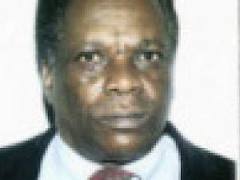 Besieged by such rugged news and punishing headlines, President Zuma found himself in a corner. To think through the bombshells thrown at him, he was probably well-advised to seek a few days of solitude and privacy of far away from his troublesome home.
A week after the fiasco in the National Assembly, Zuma left for Moscow. But why to Russia?
Reportedly Zuma and the Russian President, Vladimir Putin, have evolved a bond in which the South African leader derives considerable comfort, a personal friendship that goes beyond the call of duty. It is said that the two have now become very good friends.
Especially in context of the BRICS fraternity, Zuma and Putin meet fairly often and take time to discuss ex-officially matters of mutual concerns. Those include global issues such as the on-going turmoil in Syria, the Israeli-Palestine recent military crisis and the deteriorating condition in the Ukraine.
In all likelihood, Putin feels that he has received bad publicity over Ukraine and probably needs Zuma to boost his quest for political support in Global South. He is basically fed up with the Western negative campaign against what it calls Russian aggression. He is thus may be eager to garner support from Africa and the developing world in general to counter the sustained ‘propaganda’ of the US and its traditional European allies. Presumably, Zuma can be invaluable in this regard.
Conversely Zuma, given his political woes at home, probably needed a shoulder to cry on and a word or two of encouragement from the world’s greatest political survivor of the twenty first century. In recent years, Putin has defied and successfully resisted attempts of powerful Russian forces to unseat him. Could it be the case that Zuma is seriously concerned about political survival at home and went to Russia to seek consolation and advice from the ultimate expert on ‘how to?’
Seen in the above context, Zuma’s real purposes for the visit to Russia several weeks ago was not so puzzling after all. But it could not be public information.
*James N. Kariuki is Professor of International Relations (Emeritus) and an independent writer. He is based in South Africa. Views expressed in the blog Global Africa are his
Besieged by such rugged news and punishing headlines, President Zuma found himself in a corner. To think through the bombshells thrown at him, he was probably well-advised to seek a few days of solitude and privacy of far away from his troublesome home.
A week after the fiasco in the National Assembly, Zuma left for Moscow. But why to Russia?
Reportedly Zuma and the Russian President, Vladimir Putin, have evolved a bond in which the South African leader derives considerable comfort, a personal friendship that goes beyond the call of duty. It is said that the two have now become very good friends.
Especially in context of the BRICS fraternity, Zuma and Putin meet fairly often and take time to discuss ex-officially matters of mutual concerns. Those include global issues such as the on-going turmoil in Syria, the Israeli-Palestine recent military crisis and the deteriorating condition in the Ukraine.
In all likelihood, Putin feels that he has received bad publicity over Ukraine and probably needs Zuma to boost his quest for political support in Global South. He is basically fed up with the Western negative campaign against what it calls Russian aggression. He is thus may be eager to garner support from Africa and the developing world in general to counter the sustained ‘propaganda’ of the US and its traditional European allies. Presumably, Zuma can be invaluable in this regard.
Conversely Zuma, given his political woes at home, probably needed a shoulder to cry on and a word or two of encouragement from the world’s greatest political survivor of the twenty first century. In recent years, Putin has defied and successfully resisted attempts of powerful Russian forces to unseat him. Could it be the case that Zuma is seriously concerned about political survival at home and went to Russia to seek consolation and advice from the ultimate expert on ‘how to?’
Seen in the above context, Zuma’s real purposes for the visit to Russia several weeks ago was not so puzzling after all. But it could not be public information.
*James N. Kariuki is Professor of International Relations (Emeritus) and an independent writer. He is based in South Africa. Views expressed in the blog Global Africa are his


